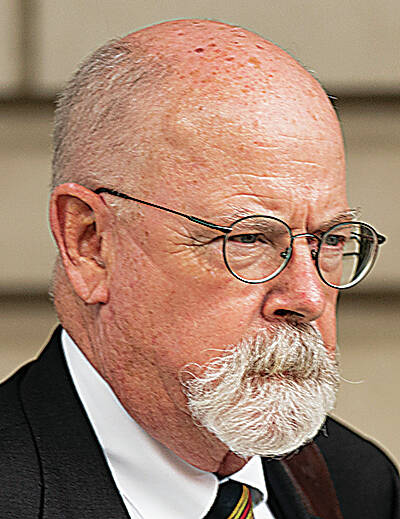WASHINGTON — A special prosecutor found that the FBI rushed into its investigation of ties between Russia and Donald Trump’s 2016 campaign and relied too much on raw and unconfirmed intelligence as he concluded a four-year probe that fell far short of the former president’s prediction that the “crime of the century” would be uncovered.
The report Monday from special counsel John Durham represents the long-awaited culmination of an investigation that Trump and allies had claimed would expose massive wrongdoing by law enforcement and intelligence officials. Instead, Durham’s investigation delivered underwhelming results, with prosecutors securing a guilty plea from a little-known FBI employee but losing the only two criminal cases they took to trial.
The roughly 300-page report catalogs what Durham says were a series of missteps by the FBI and Justice Department as investigators undertook a politically explosive probe in the heat of the 2016 election into whether the Trump campaign was colluding with Russia to tip the outcome. It criticized the FBI for opening a full-fledged investigation based on “raw, unanalyzed and uncorroborated intelligence,” saying the speed at which it did so was a departure from the norm.
And it said investigators repeatedly relied on “confirmation bias,” ignoring or rationalizing away evidence that undercut their premise of a Trump-Russia conspiracy as they pushed the probe forward.
“Based on the review of Crossfire Hurricane and related intelligence activities, we conclude that the Department and the FBI failed to uphold their important mission of strict fidelity to the law in connection with certain events and activities described in this report,” the document states.
The impact of Durham’s report, though harshly critical of the FBI, is likely blunted by Durham’s spotty prosecution record and by the fact that many of the episodes it cites were already examined in depth by th e Justice Department’s inspector general.
The FBI has also long since announced dozens of corrective actions.
The bureau outlined those changes in a letter to Durham on Monday, including steps meant to ensure the accuracy of secretive surveillance applications to eavesdrop on suspected terrorists and spies.
“Had those reforms been in place in 2016, the missteps identified in the report could have been prevented. This report reinforces the importance of ensuring the FBI continues to do its work with the rigor, objectivity, and professionalism the American people deserve and rightly expect,” the FBI said in a statement.
It also stressed that the report focused on the FBI’s prior leadership, before current Director Christopher Wray took the job in 2017.
Still, Durham’s findings are likely to amplify scrutiny of the FBI at a time when Trump is again seeking the White House.

